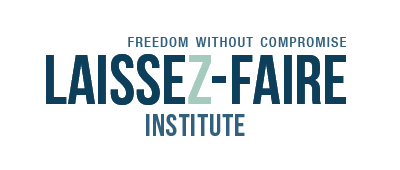Who says we need a top wing? Who says we need anything?
Howard Hughes - The Aviator
Roads? Where we're going, we don't need roads.
Doc - Back to the Future
If the State had been abolished a century ago, we'd all have robots and summer homes in the Asteroid belt.
Samuel Edward Konkin III
"But who would build the roads?" A classic question asked by statists. It's like saying: without government paid candles, who will give us light ?
There's a lot of possible responses to this statist argument. We could argue that the free market can, and did, build private roads. We could argue that roads would be much better under a free market. We can be certain that their use would be more optimal: a traffic jam is an inadequation betweeen supply and demand, thus a shortage, thus impossible under free market prices.
But here's another, deeper argument: how do we know that without government we would need roads at all? Roads are one technology for transportation, like candles are one technology for light, and printed books are one technology for storing and accessing text-based information.
In Ayn Rand's classic Anthem, for example, any progress in light technology is forbidden, in order to preserve jobs in the candle makers industry. In the real world, printed books are receiving protection from the government against other technologies.
States have always relied on static thinking (duh). Thinking of wealth as a fixed pie to be divided, for example, instead of something dynamically and continously created. Thus, they've always defended some given technology like it were holy, clingining to the past while blocking progress.
So it's no wonder static statist arguments focus on roads, instead of freedom of competition in the transportation industry.
Who needs roads when you can travel by helicopter, for instance. Or if you'd have new, much better technologies. Teleportation, flying saucers, whatever. I'm not an inventor, I'm an economist. Economists didn't invent the lightbulb to replace the candle. But what we can say, is that on a free market, someone will have the freedom, the money and the incentives to invent it, produce it, and sell it.
So I wondered, is the helicopter example realistic, or an exaggeration, considering how much more expensive it is than driving a car? Have you ever wondered if Konkin's quote was realistic, or an understatement?
Let's check the maths.
If you need a brief introduction to the power of compound interest, remember this episode of Futurama. Here's a table of Fry's bank account:
|
Fry's account ($) after 10 years after 100 years 200 300 400 500 600 700 800 900 1000 |
0.93 1.16 8.61 79.64 737.02 6,820.40 63,116.26 584,080.83 5,405,111.09 50,019,148.25 462,879,513.66 4,283,508,449.71 |
Apply this to growth rates, by going to our
Growth Rates calculator on Confoederatio.ch
And keep in mind the effect of the state size on growth rates, and the rise in State size. Empirical studies have shown that 10 more percentage points of State are enough to make a difference of 1 percentage point of growth rate.
So let's take this simple example: two countries which have a state size different by 10 percentage points, which equals to 1 percentage points growth less. So if we take one country with a growth rate of 1%, and another with a growth rate of 2%, what will be the difference over a 1000 years?
1.01^1000 = 20 959
1.02^1000 = 398 264 651
difference : 18 964 times
After a thousand years, the second country will be 19 000 times richer than the first. Is this difference big enough to equal the difference between needing roads and travelling by helicopter, or having invented teleportation? Yep.
So no, Konkin was not exaggerating.

